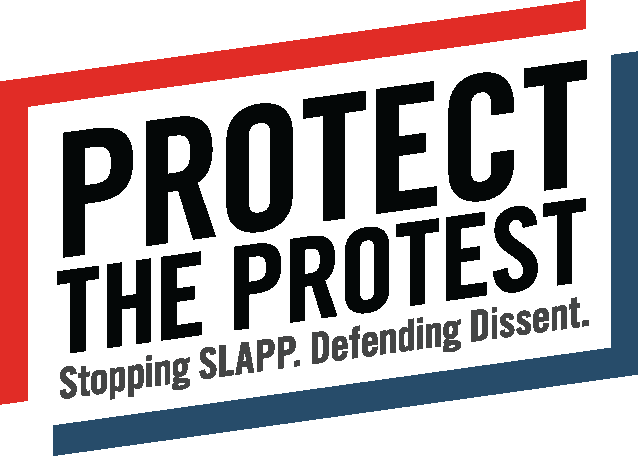Krystal Two Bulls: SLAPPed for Protecting Indigenous Land and Water
Krystal Two Bulls is a Oglala Lakota/Northern Cheyenne woman from Montana, U.S. Army veteran, and an organizer from Standing Rock protests in North Dakota. Energy Transfer, the company behind the Dakota Access Pipeline, set out to build a pipeline from Bakken oil fields in western North Dakota to southern Illinois, crossing beneath the Missouri and Mississippi Rivers.To protect their region’s drinking water thousands of indigenous peoples gathered to protest the pipeline. Krystal was SLAPPed by Energy Transfer for her involvement. She is Director, LANDBACK Campaign at the NDN Collective.
Answers edited for length and clarity. Krystal spoke with Valentina Stackl, PTP member and Senior Communications Specialist at Greenpeace USA.
Where are you from?
I grew up in Lame Deer in Southeastern Montana, I’m Oglala Lakota/Northern Cheyenne. I have a big family. Like a really big family. There are 7 of us who were raised together. I feel really fortunate where I grew up. Everyone thinks of Montana and thinks of Glacier National Park and Yellowstone National Park, which is very beautiful. But where I grew up, we are kind of at the foothills of the mountains. But we still have natural springs where we can drink water straight out of the earth. We have some of the highest water quality and air quality standards in the country. Our people have prevented coal mining on our lands for over four decades and we continue to prevent that from happening.
My rights as an Indigenous woman to steward this land go hand-in-hand with my First Amendment right to speak the truth.
How did all this begin for you? Why was this so important?
In 2016, I began to protest against the [Dakota Access] pipeline. The Standing Rock camp grew from a few protesters to a movement of thousands. My right to protest is protected under the U.S. Constitution, even if a wealthy corporation disagrees with my views. I have stood up for the rights of my own People and other Indigenous Peoples. My rights as an Indigenous woman to steward this land go hand-in-hand with my First Amendment right to speak the truth.
Why did you decide to speak out against the pipeline?
Like many Indigenous women and men, I take my responsibility as an original steward of this land seriously. It was apparent that Energy Transfer’s pipeline violated the Rights of Mother Earth and disregarded the Rights of Indigenous Peoples. When people ask me what brought me to this work… I was born into this. I didn’t have a choice about what fight I’m gonna fight or what struggle I want to support. I was born into the struggle that I now exist in every day.
A lot of what we saw happen [at Standing Rock] was because of our youth. The youth at Standing Rock had acknowledged and seen, if this pipeline goes through this territory and under the Missouri, and leaks, it’s going to contaminate millions of people. Not just thousands of people, and not just people on the reservation, but millions of people. And when they seen that, they knew they had to do something. Seeing that, seeing young people step up and verbalize how this is going to impact their future and their ability to live their lives was a powerful moment. I think everyone across the country saw that. And everyone across the country responded to young people. That’s what pulled me in. That’s what motivated me to go. Young people are stepping up and doing this, then it is my job as an adult to make sure that they are safe. My job is to make sure that their voices are uplifted. Make sure they can articulate what they need from us and from the world to be able to exist here.
What was it like when you found out that you were being sued? Did you deal with the company’s representatives?
Energy Transfer was not so concerned with my Constitutional rights. The company filed lawsuits against me and others who had publicly opposed its pipeline. Energy Transfer accused us of racketeering — that is, organized crime!
Legal repercussions are always a concern, but some of the larger issues I face are white patriarchy within organizations. This is not a job for me, this work isn’t work. This is my life. This is what has to be done.
What would say to someone facing a similar threat?
[Energy Transfer lost the case against me] This is the power of collaboration. This is the power of Prayer. The power of building relationships. It’s the power of organizing collectively. My First Amendment rights are being upheld with this decision. My rights as an Indigenous woman to steward this land are being upheld by this decision. Those two things are not mutually exclusive. I have to be able to speak the truth to do my work.
